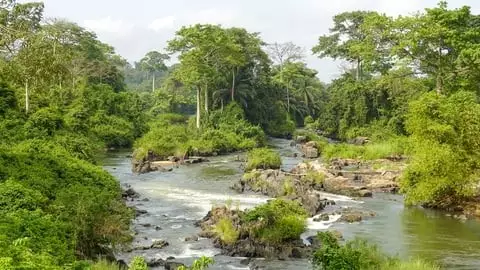Ivory Coast joined the United Nations Water Convention, becoming the 10th African nation to do so.
About United Nations Water Convention:
- The United Nations Water Convention, formally known as the Convention on the Protection and Use of Transboundary Watercourses and International Lakes, is an international treaty aimed at promoting the sustainable management of shared water resources.
- It was adopted in Helsinki in 1992 and came into effect in 1996.
- This Convention is one of the five environmental treaties negotiated under the auspices of the United Nations Economic Commission for Europe (UNECE).
- The Water Convention is a unique legally binding instrument that plays a crucial role in the sustainable management of transboundary watercourses and international lakes.
- It supports the implementation of the Sustainable Development Goals (SDGs), aids in preventing conflicts, and promotes peace and regional integration.
- As a comprehensive framework, the Convention enhances cooperation among countries sharing the same water resources, necessitating the establishment of joint bodies and specific agreements for effective management.
Expansion and Global Reach
- Originally designed as a regional framework for the pan-European region, the Convention underwent significant amendments to broaden its membership.
- Since March 2016, it has been open to all United Nations member states.
- This expansion has seen significant milestones with Chad and Senegal joining as the first African parties in 2018.
- Furthermore, Iraq became the first Middle Eastern member in March 2023, Namibia joined as the first Southern African country in June 2023, and Panama as the first country from Latin America in July 2023.
Ref: Source
| UPSC IAS Preparation Resources | |
| Current Affairs Analysis | Topperspedia |
| GS Shots | Simply Explained |
| Daily Flash Cards | Daily Quiz |
Frequently Asked Questions (FAQs)
What is the United Nations Water Convention?
The United Nations Water Convention is an international treaty promoting sustainable management of shared water resources adopted in Helsinki in 1992 and came into effect in 1996.
How does the Water Convention support Sustainable Development Goals?
It supports SDGs by enhancing cooperation among countries sharing water resources, aiding in preventing conflicts, and promoting peace and regional integration.
What role does the Water Convention play in transboundary water management?
It is a unique legally binding instrument that plays a crucial role in sustainable management of transboundary watercourses and international lakes.
What is the goal of the United Nations Water Convention?
The goal is to promote sustainable management of shared water resources, prevent conflicts, and support peace and regional integration.



